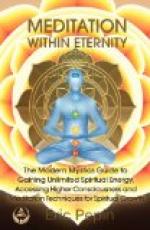Swedenborg was born in Stockholm, in January, 1688, and lived to the advanced age of eighty-four years.
Swedenborg was well born; he was the son of a bishop of the Swedish church, and during his lifetime held many positions of honor. He was a friend and adviser of the king, and his expert knowledge of mining engineering gave him a place among the scientists of his age.
He was a voluminous writer, his early work being confined to the phases of materialistic science, notably on mines and metals, and later upon man, in his physiological aspect.
His “De Cerebro and Psychologia Rationales,” published in his fifty-seventh year, showed a different Swedenborg from the one to whom his colleagues were accustomed to refer with much respect.
This book dealt with man, not as a product of brute creation, but as an evolutionary creature, having at least a possibility of divine origin. It is, however, his “Arcana Coelestia” upon which “The Church of the New Jerusalem” is founded; and it is this work which caused Swedenborg’s friends and colleagues to determine that he had become insane. It is, in fact, only within very recent years, that the so-called scientific world has deigned to regard Swedenborg’s revelations with any degree of serious and respectful attention.
Swedenborg’s Illumination was not, like that of so many others, who have founded a new religion, a sudden influx of spiritual consciousness, but rather a gradual leading up to the inevitable goal, by virtue of serious thought, deep study, and a high order of mentality.
But that the Swedish seer received, in full measure, the blessing of cosmic consciousness, is beyond doubt.
Swedenborg’s extremely simple habits of life; his freedom from any desire for display, or for those social advantages into which he was born; his gentleness and unassuming manner, of which much is written by his followers, all point to him as one upon whom the blessing might readily descend. Swedenborg was a vegetarian, but this seems not to be a necessary characteristic of those possessing illumination, although, when cosmic consciousness shall have become almost general, vegetarianism must inevitably come with it, as animal life will disappear from the earth.
Swedenborg, like many others who have perceived the cosmic light, evidently believed that he had been specially selected and consecrated for the work of the new church. That is, he took his illumination, not as an initiation into the higher degrees of cosmic truth, but as a special and personal revelation. This view characterizes those who founded a new, or a reformed religious system, while as a matter of truth, the light that comes is a part of the cosmic plan, and not, as Swedenborg and others imagine, as a personal revelation.




